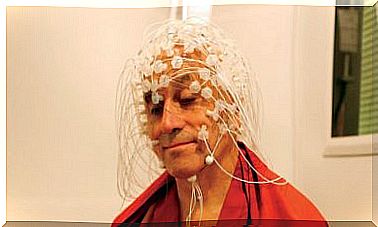Do You Have A Healthy Self-confidence?

Healthy self-confidence is closely linked to the subjective assessment we make of ourselves. Healthy self-esteem will always generate positive well-being, while it can bring us into depression at its lowest level. That’s why it’s so important to take care of it and keep evaluating it, simply because it’s something that fluctuates so much. One of the tools we can find in psychology that will help us achieve this goal is Rosenberg’s self-esteem scale.
This test is short, fast, reliable and has a high validity. In fact, to such an extent that it is one of the most widely used tools by psychologists to assess people’s self-esteem. It is also often used when you want to measure this variable in a research context.
Rosenberg’s Confidence Scale and Its Implementation
Rosenberg’s Scale of Confidence takes its name from its creator Morris Rosenberg, professor and doctor of sociology, who devoted several years of his life to the study of self-esteem and self-image. He presented the Scale’s first proposal in his book: Society and the Adolescent’s Self-Image .
The Morris Rosenberg Scale consists of ten statements that revolve around how much or how little the person values themselves and how satisfied they are with themselves. The first five statements are formulated positively, the other five negatively.

Each of the positive statements is scored from 0 (totally disagree) to 3 (completely agree). The negative statements are scored inversely, 3 implying totally disagree and 0 totally agreeing.
These are the explanations:
1. I think I am a person who deserves appreciation, at least as much as others.
2. I feel that I have positive qualities.
3. In general, I tend to think I am a failure.
4. I am able to do things as well as most other people.
5. I feel like I don’t have much to be proud of.
6. I am positive towards myself.
7. Overall, I feel satisfied with myself.
8. I would like to have more respect for myself.
9. Sometimes I feel useless.
10. Sometimes I think I’m good for nothing.
The results
The positive statements (1, 2, 4, 6, 7) and the negative statements (3, 5, 8, 9, 10) are added together. The result of their score allows us to get an idea of the state of the person’s self-image. A score lower than 15 would indicate very low self-esteem, suggesting it is something that needs to be worked on.
A score between 15 and 25 points would indicate healthy self-esteem and falls within the parameters of what is considered “balanced.” A score higher than 25 would indicate a strong and healthy person. However, such a high score can also indicate problems in the way a person looks at reality, and could highlight people who are satisfied with themselves. The ideal score is between 15 and 25 points.

The most relevant findings of Rosenberg’s confidence scale
Rosenberg’s Scale of Confidence, originally intended only for teenagers, was later adapted for adults. This allowed whole populations and even different cultures to be evaluated, leading to very interesting findings.
One of these findings has shown that people living in individualistic societies, such as the United States, feel highly competent, but less satisfied with themselves. The same does not happen in countries like Japan. There you will find a collectivism that improves the sense of self-satisfaction, but causes a lower sense of competence.
In addition, the scale showed that extroverted and more emotionally stable people have higher self-esteem, while introverted and emotionally unstable people have low self-esteem.

Despite all these discoveries, Rosenberg’s Confidence Scale revealed that all people, men or women, children or adults, tend to evaluate themselves in a positive way. Of course, we must ask ourselves whether this is because many people are ashamed to admit their shortcomings—the things that make them feel bad—or because they cannot recognize them.
Do you have a healthy self-confidence?
To this day, the Rosenberg scale serves to solve a common problem in psychology—to measure certain variables that influence our behavior, thoughts, and emotions. The development and survival of this scale reminds us that it is important to guard our own self-esteem, take good care of it and always keep it at a level that helps us rather than hinders us. A healthy self-esteem is one of the pillars of our well-being, and at the same time the key to feeling happy and content in various areas of our lives. So, would you like to take the test and find out how much you value yourself?
Images Courtesy of Kathrin Honesta









